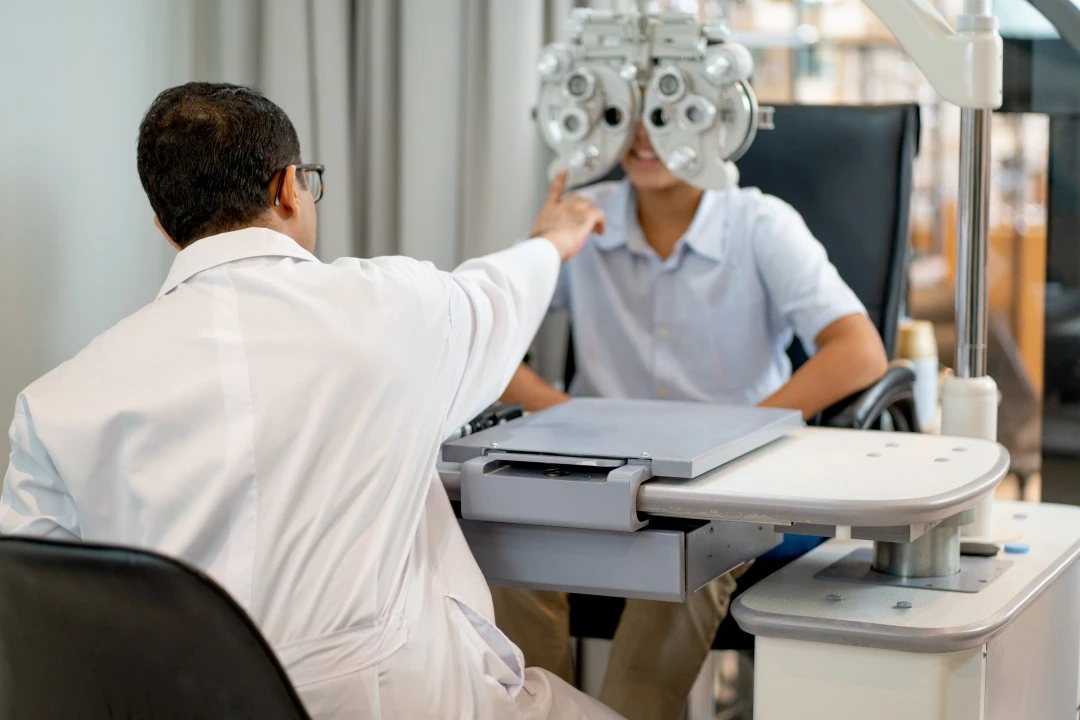The Importance of Vision and Hearing Tests for Drivers

Safe driving relies heavily on your ability to see and hear clearly. Whether you're navigating the bustling streets of Sydney or cruising through the scenic routes of New South Wales, good vision and hearing are essential for reacting to road conditions, traffic signals, and other drivers. In this blog, we’ll explore why regular vision and hearing tests are crucial for drivers and how they contribute to road safety.
Quick Summary Box
TL;DR: Regular vision and hearing tests are vital for safe driving. They help ensure you can see and hear clearly, reducing the risk of accidents.
- Time Required: 30 minutes to 1 hour for each test.
- Difficulty Level: Easy (non-invasive tests).
- What You’ll Need: Access to an optometrist and audiologist.
Why Vision and Hearing Tests Matter
Driving is a complex task that requires sharp senses. Here’s why regular vision and hearing tests are so important:
- Prevents Accidents: Clear vision and hearing help you detect hazards, read road signs, and respond to emergencies.
- Ensures Compliance: In New South Wales, drivers must meet specific vision standards to hold a license.
- Improves Reaction Time: Good vision and hearing allow you to react quickly to changing road conditions.
- Enhances Night Driving: Regular eye tests ensure you can see clearly in low-light conditions.
- Supports Overall Health: Vision and hearing tests can detect underlying health issues early.
Key Areas to Focus On
Here’s what you need to know about vision and hearing tests for drivers:
1. Vision Tests
Why It’s Important: Clear vision is critical for reading road signs, spotting pedestrians, and judging distances.
What to Do: Visit an optometrist annually for a comprehensive eye exam. Ensure your prescription glasses or contact lenses are up-to-date.
2. Hearing Tests
Why It’s Important: Hearing helps you detect sirens, horns, and other auditory cues on the road.
What to Do: Schedule a hearing test with an audiologist every 2–3 years, especially if you notice any hearing loss.
3. Night Vision
Why It’s Important: Poor night vision can make driving in low-light conditions dangerous.
What to Do: Discuss night vision issues with your optometrist and consider anti-glare lenses if needed.
4. Peripheral Vision
Why It’s Important: Peripheral vision helps you detect vehicles or obstacles in your blind spots.
What to Do: Ensure your eye exam includes a peripheral vision test.
5. Hearing Aids
Why It’s Important: If you have hearing loss, hearing aids can significantly improve your driving experience.
What to Do: Consult an audiologist to find the right hearing aids for your needs.
Benefits of Regular Vision and Hearing Tests
- Enhances Safety: Reduces the risk of accidents caused by poor vision or hearing.
- Keeps You Compliant: Ensures you meet the legal requirements for driving in NSW.
- Improves Confidence: Knowing your senses are sharp boosts your confidence on the road.
- Detects Health Issues Early: Regular tests can identify conditions like glaucoma or hearing loss before they worsen.
Tips for Staying on Top of Vision and Hearing Health
- Schedule Regular Tests: Visit an optometrist and audiologist as recommended.
- Wear Corrective Devices: Always wear glasses, contact lenses, or hearing aids if prescribed.
- Protect Your Senses: Wear sunglasses to protect your eyes from UV rays and earplugs in noisy environments.
- Stay Informed: Learn about the latest advancements in vision and hearing care.
How Vision and Hearing Tests Help with the NSW Driving Test
If you’re preparing for the New South Wales driving test, ensuring your vision and hearing meet the required standards is crucial. Examiners may check your ability to read road signs and hear auditory cues during the road test NSW. Regular tests not only help you pass the driving test NSW but also ensure you’re a safe and responsible driver.
FAQs
1. How often should I get my vision tested?
It’s recommended to have an eye exam every 1–2 years, or as advised by your optometrist.
2. Can I drive if I have hearing loss?
Yes, but you must use hearing aids if prescribed and ensure you can hear essential sounds like sirens and horns.
3. Where can I find an optometrist or audiologist in Sydney?
Search online for optometrist near me or audiologist near me and choose a certified professional with good reviews.
Final Call to Action
Regular vision and hearing tests are essential for safe driving and overall well-being. If you’re preparing for the New South Wales driving test or simply want to ensure you’re driving safely, book a lesson with Right Choice Driving School today. Our experienced instructors will help you become a confident and responsible driver.